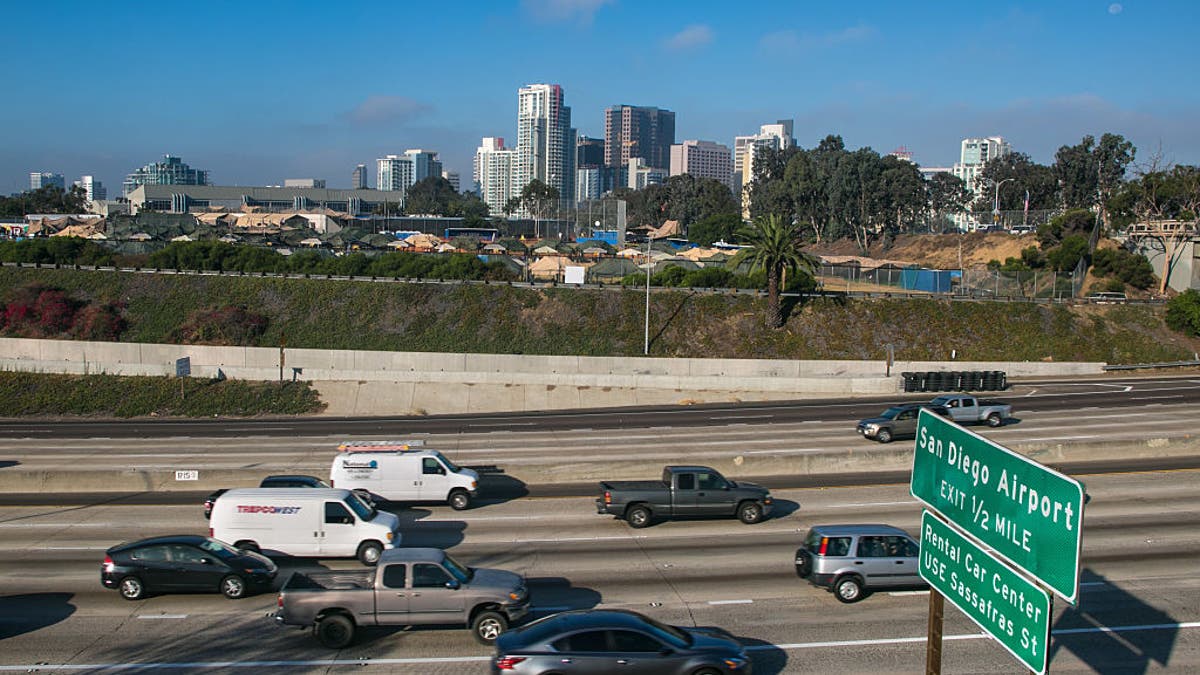California proposing bill to allow Mexico residents to pay in-state tuition
El Cajon, California Mayor Bill Wells (R) on the new bill and how this would impact California
A California border mayor is speaking out against a new bill that would allow some Mexican students who live near the U.S. border to pay in-state tuition at community colleges in San Diego.
El Cajon Mayor Bill Wells called the legislation introduced in the California state legislature a "slippery slope" that burdens taxpayers and undermines border security Thursday on "Fox & Friends First."
"27% of the people that live in my town are Hispanic, and they're asking me to make sure that we have low crime and good parks and safe streets. They don't want me to be giving in-state tuition to people that live in other countries, foreign nationals, whether they be from Mexico or Ireland… people want us to be taking care of their kids and their community," Wells said.
CALIFORNIA RINGS IN 2023 WITH NEW LAWS ON ABORTION, TRANSGENDER YOUTH, POLICE

SAN DIEGO, CA - JULY 23: The downtown skyline is viewed from a hill overlooking Interstate 5 on July 23, 2016, in San Diego, California. San Diego, with its large, permenent military population, has become a popular summer destination for tourists, but the increasingly dangerous homeless population has taken over many downtown areas. (Photo by George Rose/Getty Images)
San Diego Assemblymember David Alvarez introduced the legislation that would allow low-income students who live within 45 miles of the state’s border with Mexico to be exempt from the nonresident tuition fee if they have "demonstrated a financial need for the exemption."
"We live in a dynamic border region where we need to educate more students to fill the jobs required for growth" Alvarez said in a statement, arguing that San Diego needs to double the number of people with post-secondary education by 2030 to meet the demand of the local economy.
Wells said that although the community college system needs a "revamp," the move would open the door to Californians covering more benefits for non-residents.

A Border Patrol agent on horseback monitors the area near where the U.S.-Mexico border fence meets the Pacific Ocean on Nov. 7, 2021. (Frederic J. Brown/AFP via Getty Images)
"It's really just kind of nibbling around the edges of the whole concept that borders just don't matter, that we should just open up the borders and let anybody do whatever they want," he said.
"Where does it end? Do we give unemployment benefits to people that don't live in the country? Do we give unemployment benefits to people that aren't even citizens? Do we give a free attorney to somebody that we give health care to people that aren't citizens?"
Wells added the community college system needs to be focused on becoming more "user-friendly" to prepare students to secure jobs that pay wages high enough to live in the expensive state.
"We're propping up the community college system, and we're making sure that the unions are taken care of. So really, in turn, they can take care of Democrat politicians and it goes back and forth."
"California is an incredibly expensive place to live. A lot of that has to do with the government. Really unrealistic regulations, unrealistic taxes. But if we're going to do that to people, we're going to ask them to live in the state of California and work in the state of California and bring income into the state of California, we have to prepare them for jobs that actually give them enough money to live here."
CLICK HERE TO GET THE FOX NEWS APP
CBS8 reported that international students pay an average over $8,000 per semester for community college tuition, compared to about half of that for in-state students.
The proposal would place a limit of 10% of students per San Diego and Imperial Counties Community Colleges Association (SDICCCA) college to be exempt from the nonresident tuition fee each academic year.
Fox News' Adam Shaw contributed to this report

